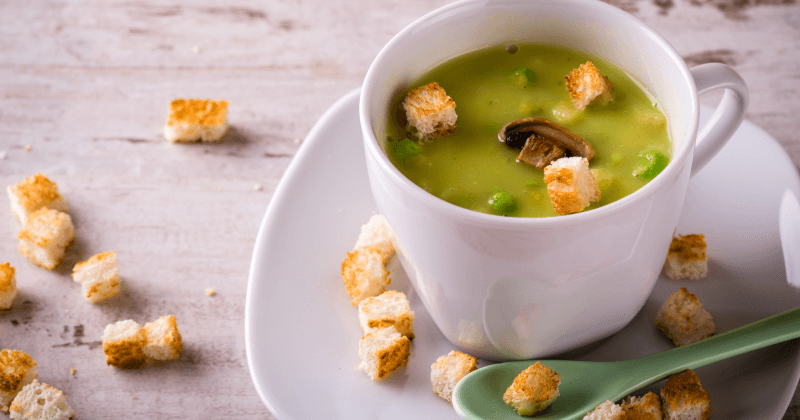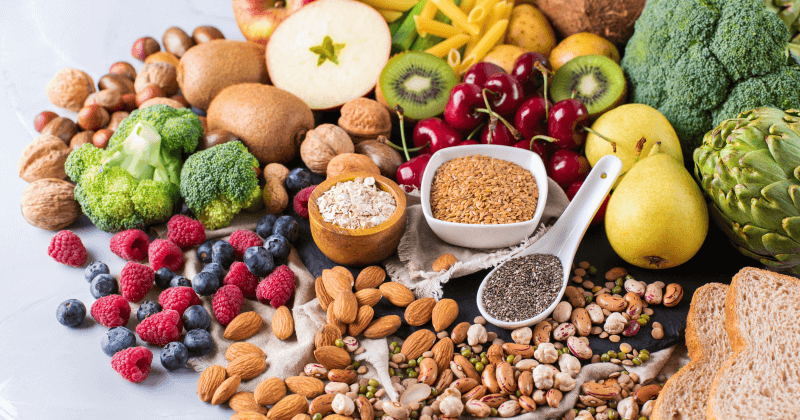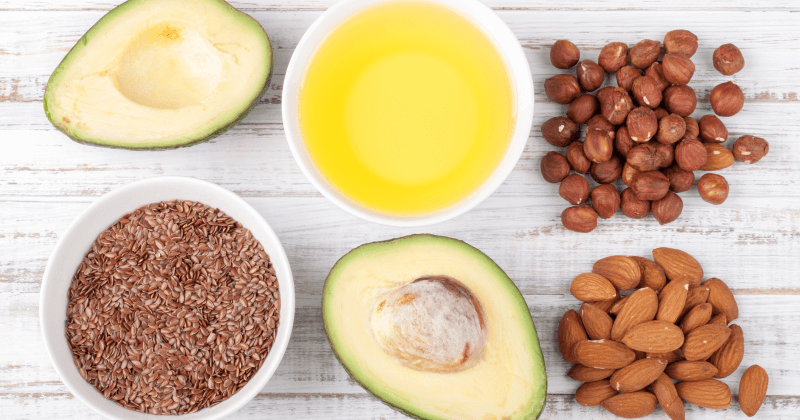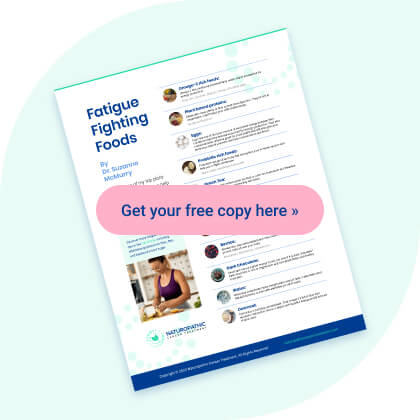Sustaining energy throughout the day can be a challenge for anybody, and even more so for the clients I see going through cancer treatment.
But I’ve also seen again and again how healthy eating will help keep your energy at its optimal level.
At its simplest, this means including a variety of unrefined carbohydrates, proteins, and fats, with an emphasis on vegetables, whole grains, and healthy oils.
Some foods, such as candy and desserts made with simple sugars can give you a quick lift but can fade as quickly as that energy comes, leaving you with even more fatigue.
However, there’s more to it than a food list of good food and bad food.

The first step is making sure your blood sugar stays balanced.
Balanced blood sugar means you’re able to sustain your energy more consistently, and without the roller coaster of peaks and drops throughout your day.
Here’s my 3 core principles to help:
- Eat small, frequent meals… It’s better to eat small meals and snacks every 2-3 hours than three large meals a day. This approach can reduce your perception of fatigue because your brain, which has very few energy reserves of its own, needs a steady supply of nutrients.
- Smaller is better, especially at lunch…researchers have observed that the sleep cycle of people who eat a lot at lunch typically show a more pronounced afternoon slump. This may be due to an increase in blood sugar after eating, which is followed by a slump in energy later.
- Balance your macronutrients…those nutrients are protein, fiber and fats. They will help with creating a sense of fullness and reduce the risk of having a dramatic blood sugar drop.

Next, focus on fiber.
Fiber is the indigestible part of plant foods that our bodies need for optimal digestion. The two main types of fiber are soluble and insoluble.
I recommend including both:
- What are soluble fibers? They are commonly found in fruits (especially pear, apple, and citrus fruits), oats, barley, and legumes. These water-soluble fibers form gels within the digestive tract, and provide many beneficial health effects including:
- Contributes to feelings of fullness and decreases appetite.
- Slows the absorption of carbohydrates which can reduce blood sugar.
- Helps to lower blood cholesterol and triglycerides.
- What are insoluble fibers? They are commonly found in wheat bran, corn bran, whole grain breads and cereals, as well as vegetables. The main beneficial effect of insoluble fiber includes:
- Facilitating the movement of food through the digestive tract, preventing constipation.

A Healthy Approach to Fat.
Fats are vital to our bodies, but they can also be dangerous if you are consuming too much of the wrong types of fats. Different foods usually have various combinations of fats, but the unhealthy fats are easy to avoid.
- Plant Based Saturated Fats. Eat this. An example: coconut oil.
- Monounsaturated Fats. Eat these. Examples include olive, avocado, and macadamia nut oils.
- Polyunsaturated Fats. Know the difference. Naturally occurring polyunsaturated fats in animal protein and fatty fish are great for you, and you should eat these. Processed polyunsaturated fats in “heart healthy” margarine spreads are bad for you.
- Trans Fats. Completely avoid. These are processed fats that are chemically altered (hydrogenated) to improve shelf life. Avoid all hydrogenated fats, such as margarine.

What specific foods are beneficial for reducing fatigue?
Here’s some of my top picks of specific foods that can help your energy levels:
- Omega-3 rich foods: omega-3 fatty acids are essential fatty acids, which are needed for energy production.
Foods: Fatty Fish, Sardines, Walnuts, Omega-3 fortified eggs. - Plant based proteins: Beans also have plenty of fiber to help slow digestion. They’re rich in magnesium, which helps your cells make energy.
Foods: beans and legumes. - Eggs: Eggs are one of the best sources of sustained energy because they contain certain fats that are important for energy production. They also contain lecithin, which is great for brain health and will also give your body important B vitamins that help concentration and focus.
- Probiotic rich foods: Probiotics are good bacteria that strengthen your immune system and help you to fight off disease.
Foods: yogurt, kefir, sauerkraut, kombucha. - Green Tea: The compounds within green tea help to calm the brain such as l-theanine while at the same time increasing alertness.
- Apples: Apples contain pectin and quercetin, which help to boost metabolism, reduce belly fat, and curb cravings.
- Goji Berries: Goji berries are known to help boost energy levels, enhance mental clarity, and improve memory. They are also high in beta-carotene and vitamin C, which helps to protect the skin from damage and inflammation.
- Berries: Berries also have antioxidants and other nutrients that help nourish and protect cells all over your body.
Foods: Blueberries, blackberries, strawberries. - Dark Chocolate: Chocolate can be a great energy boost, but only if it is dark chocolate! Dark chocolate is rich in magnesium and iron which helps with feeling more alert.
- Water: When your body doesn’t have enough water, you get tired. It also helps carry fuel and nutrients to your cells and helps get rid of waste.
- Oatmeal: Oatmeal is a complex carbohydrate. That means it’s full of fiber and nutrients. Oatmeal is slower to digest and supplies energy evenly instead of all at once.
Get the Free Summary PDF for Quick Reference!
Are you (or someone you know) facing the challenges of cancer treatment?
I’m a naturopathic oncologist, specializing in supporting cancer patients and working with their treatment team to help them get better, faster, and with less side effects.
I was one of the few chosen Naturopathic doctors who completed an accredited hospital-based integrative oncology residency. And was named a Fellow of the American Board of Naturopathic Oncology.
I help cancer patients before, during, and after treatment from the comfort of their own home (through telehealth), with comprehensive support through the entire process.
Schedule your virtual consult today »
Disclaimer: The above information should not be taken as medical advice. Every individual is different in their dietary and nutritional needs based on their cancer diagnosis, treatment and health concerns. Please speak with your medical provider before implementing any of the above information.



